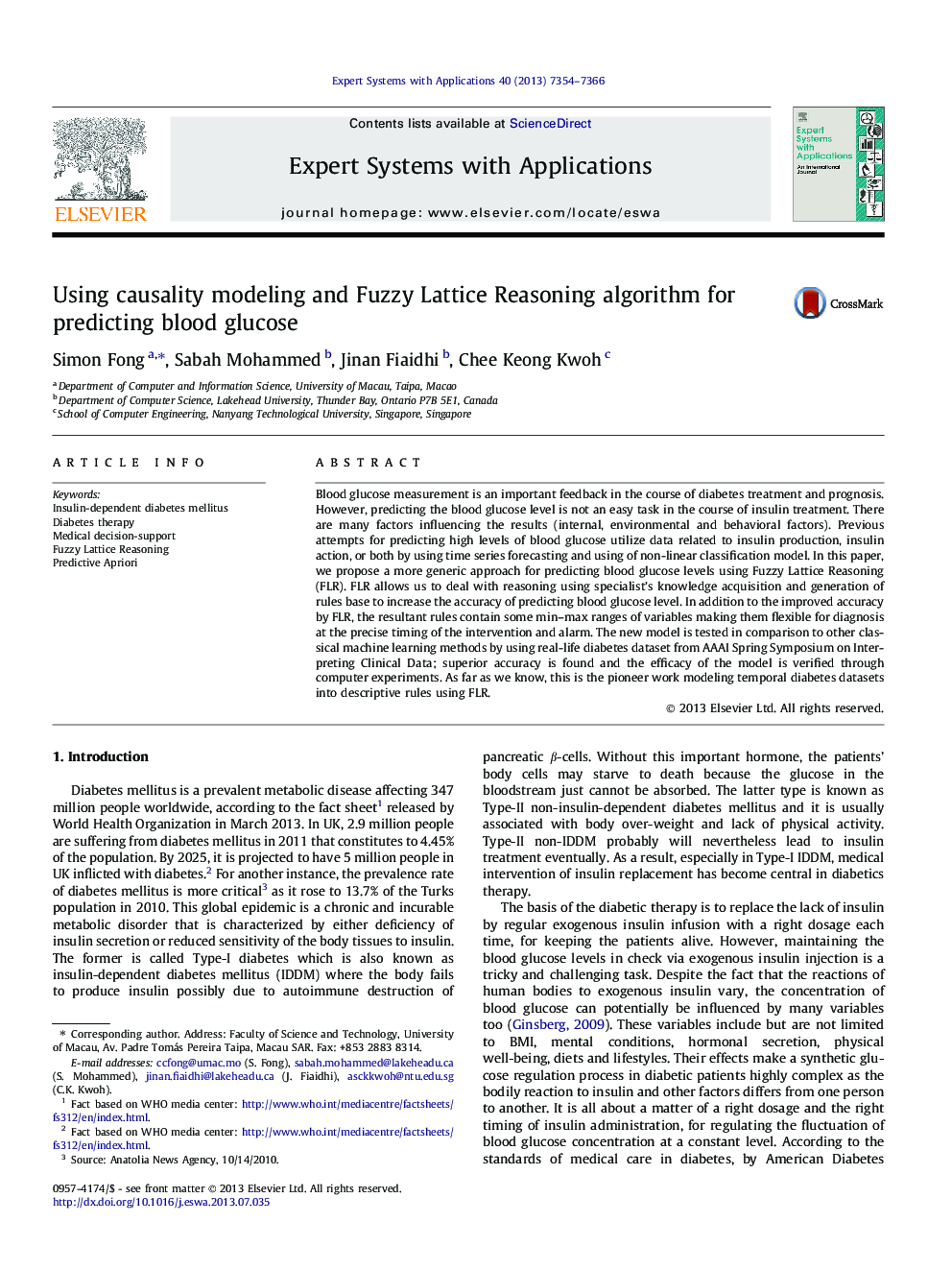| Article ID | Journal | Published Year | Pages | File Type |
|---|---|---|---|---|
| 383587 | Expert Systems with Applications | 2013 | 13 Pages |
•Predicting blood glucose level is always a multi-disciplines challenge.•So far many researchers attempted prediction based on “batch” data that are accumulated over time.•In this paper we used Fuzzy Lattice Reasoning in order to generate rules by processing continuous data stream.•The rules that are generated by FLR contain min–max ranges for each influential factors that are fuzzy in nature.•The rules will be useful in calibrating the insulin dosages and other therapical intervention.
Blood glucose measurement is an important feedback in the course of diabetes treatment and prognosis. However, predicting the blood glucose level is not an easy task in the course of insulin treatment. There are many factors influencing the results (internal, environmental and behavioral factors). Previous attempts for predicting high levels of blood glucose utilize data related to insulin production, insulin action, or both by using time series forecasting and using of non-linear classification model. In this paper, we propose a more generic approach for predicting blood glucose levels using Fuzzy Lattice Reasoning (FLR). FLR allows us to deal with reasoning using specialist’s knowledge acquisition and generation of rules base to increase the accuracy of predicting blood glucose level. In addition to the improved accuracy by FLR, the resultant rules contain some min–max ranges of variables making them flexible for diagnosis at the precise timing of the intervention and alarm. The new model is tested in comparison to other classical machine learning methods by using real-life diabetes dataset from AAAI Spring Symposium on Interpreting Clinical Data; superior accuracy is found and the efficacy of the model is verified through computer experiments. As far as we know, this is the pioneer work modeling temporal diabetes datasets into descriptive rules using FLR.
